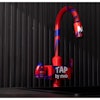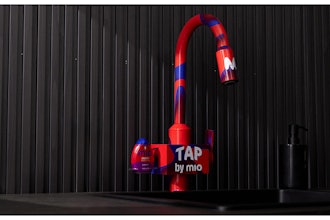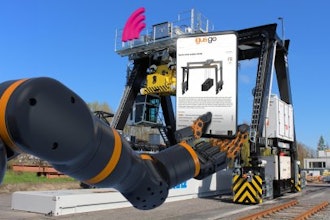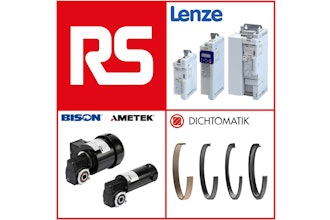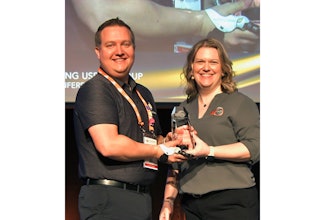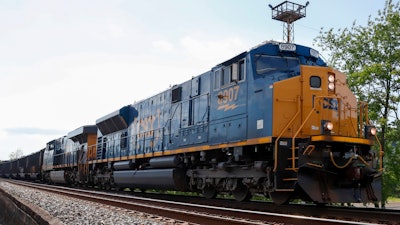
OMAHA, Neb. (AP) — A federal appeals court has ruled that details of some of the conversations between the nation's four largest railroads about their rates can now be included in lawsuits challenging billions of dollars they charged their customers, but the mixed ruling will also exclude some documents.
The ruling from the District of Columbia Circuit Court of Appeals this week will likely set up more arguments over evidence as Union Pacific, BNSF, Norfolk Southern and CSX railroads defend themselves against dozens of lawsuits accusing them of conspiring to inflate their rates with coordinated fuel surcharges between 2003 and 2007.
The key to determining what evidence is admissible will be whether the conversations relate to shipments that cross multiple railroads or not. The court noted that federal law does allow railroads to coordinate about shared shipments, but said it “defies logic” to exclude discussions about traffic that stays on a single railroad or conversations about all shipments.
These price-fixing allegations have been creeping through the courts since 2007. The cases used to be part of a class-action lawsuit including as many as 16,000 shippers in a variety of industries, but companies were forced to file their own lawsuits after an appellate court rejected that group approach in 2019.
One of the plaintiffs’ attorneys, Stephen Neuwirth, said the ruling should help the major companies that filed lawsuits — including food producer Campbell Soup, major utility Dominion Energy and carmaker Hyundai — show that the railroads talked about applying fuel surcharges to all traffic to generate profits.
“The court’s ruling will help ensure that a jury can see the evidence of defendants’ collusion, and that railroads are not effectively immune from the antitrust laws,” Neuwirth said.
But railroads praised the ruling Wednesday because it said conversations about the shipments they share can be excluded from the lawsuits.
“We are grateful to the D.C. Circuit Court of Appeals for recognizing the intent of Congress to prevent normal interline communications from being used to infer unlawful conspiracy,” Union Pacific spokeswoman Robynn Tysver said in a statement.
CSX spokeswoman Cindy Schild the ruling recognizes the importance of lawful collaboration when railroads work together to deliver freight.
“This fuel surcharge litigation against the U.S. based Class 1 railroads has been ongoing for over 15 years,” Schild said. "CSX has and will continue to defend against the unfounded claims of anti-trust violation as its fuel surcharge practices were arrived at and applied lawfully.”
The two other major freight railroads didn't immediately comment on the ruling. In the lawsuits, they have argued their fuel surcharges were legal and simply intended to recover the skyrocketing cost of fuel at the time they were imposed. Similar charges are common in the transportation industry.
The law that lets freight railroads work together to handle shipments they hand off to each other as they cross the country is part of the decisions Congress made when they deregulated railroads in 1980. Even though federal law encourages competition among railroads, they are allowed to coordinate about the shipments they share to ensure the continuity of the nation’s rail network.
The four major railroads handle the majority of the millions of shipments that cross the country each year with Omaha, Nebraska-based Union Pacific and Fort Worth, Texas-based BNSF operating in the Western United States while Jacksonville, Florida-based CSX and Atlanta-based Norfolk Southern compete for freight in the East.

